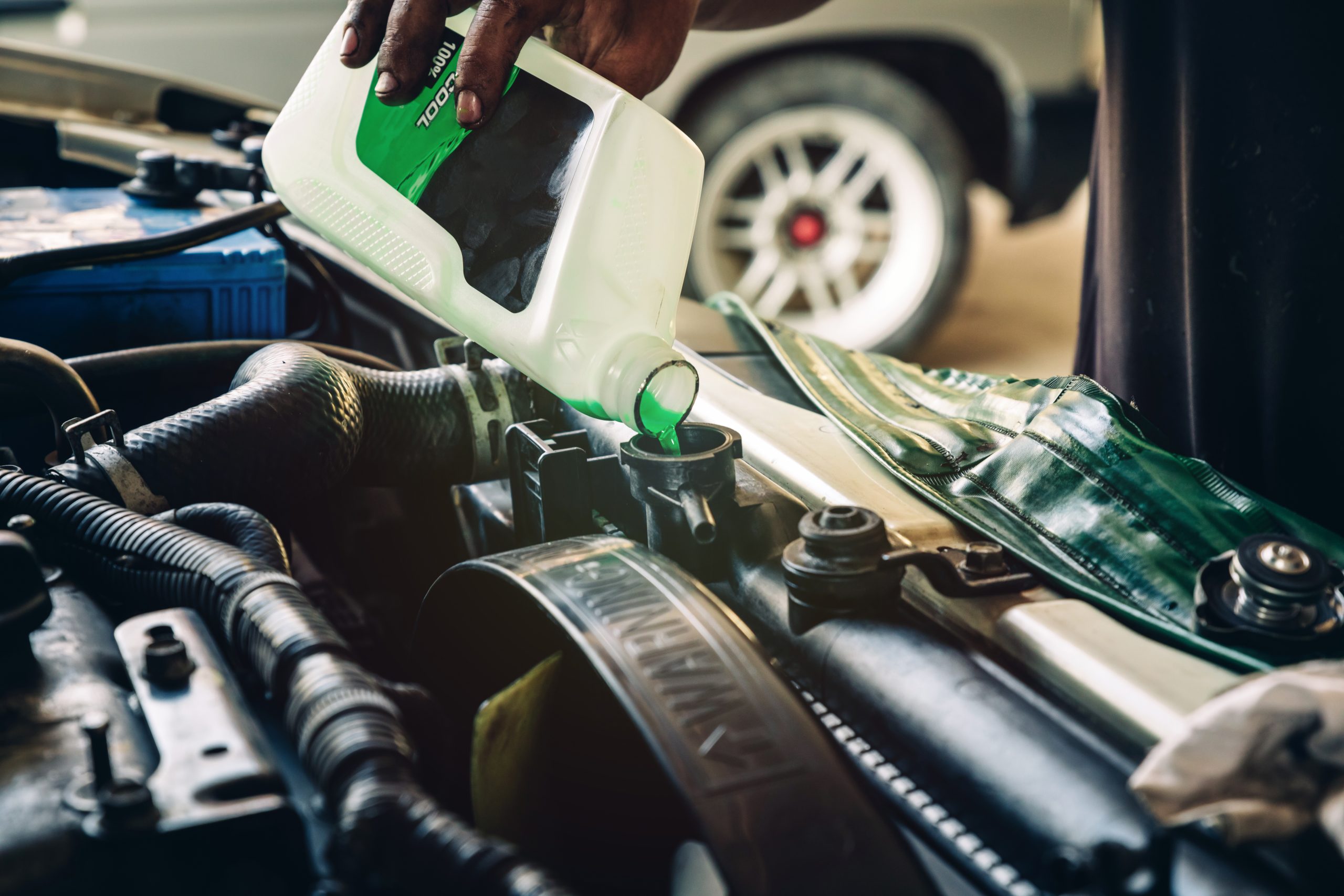Some RV overheating symptoms are easy to spot. You might see steam coming from under the hood, hear your cooling fans working overtime, or notice a sudden loss in engine power. Other signs include a sweet smell from leaking coolant, warning lights on your dash, or a visible rise on your temperature gauge—especially after turning on the AC. These symptoms are warning signs that your engine is working too hard and not cooling efficiently.
Why Does RV Overheating Happen When the AC Is On?
When your air conditioner is running, it places additional load on the engine. Normally, the engine’s cooling system can handle the strain, but when one component is faulty, the added stress can push it over the edge. Here are some of the most common causes:
1. Faulty Cooling Fan or Fan Switch
The fan helps keep your engine at a safe operating temperature. If the blades are damaged or the motor or switch fails, your RV won’t get the airflow it needs to cool down properly.
2. Overworked AC Compressor
The AC compressor draws power from the engine to pressurize refrigerant. If it’s not working efficiently, it creates a “rotational load” that increases engine stress and heat.
3. Bad Coolant Temperature Sensor
This sensor tells your RV when to activate the cooling fans. A malfunctioning sensor sends incorrect data, which can delay fan activation and lead to overheating.
4. Broken Water Pump
Your water pump moves coolant through the engine. If it’s broken, leaking, or jammed, your system can’t regulate temperature effectively.
5. Clogged Condenser Fins
The condenser cools the refrigerant before it reenters the engine. Blocked fins can reduce airflow and refrigerant efficiency, contributing to overheating.
What’s the Best RV Overheating Fix?
Solving an overheating issue depends on the root cause, but here are several steps you can take:
Inspect the Cooling System
Pop the hood and check for damaged hoses, a jammed radiator cap, or coolant leaks. A blocked radiator or kinked line can quickly cause heat buildup.
Top Off the Coolant
Low coolant is one of the most common RV overheating symptoms. Check your reservoir and refill as needed. Also, look for signs of leaks or cracks.
Test Refrigerant Pressure
Improper refrigerant pressure forces the AC system to work harder, adding heat to the engine. Have a technician inspect it if you’re unsure.
Schedule a Professional Service
If you’ve checked the basics and still can’t find the issue, take your RV to a certified HVAC or engine tech. These systems are complex and sometimes require expert diagnostics.
Replace Worn Components
If necessary, replacing parts is the most effective RV overheating fix. Cost estimates include:
- AC Compressor: $1,200–$3,500
- Condenser Fan: $400–$900
- Water Pump: $450–$650
- Coolant Temp Sensor: $150–$700
Don’t Let RV Overheating Symptoms Derail Your Trip
Whether you’re cruising down the coast or heading off-grid, RV overheating can put a serious dent in your plans. Knowing what to look for—and having a go-to RV overheating fix—can save you time, money, and stress. But even with the best maintenance routine, unexpected issues can still arise.
That’s why it’s smart to protect your RV with coverage from Happy Camper Insurance. Contact us today to keep your trips safe, cool, and stress-free—no matter where the road takes you.


